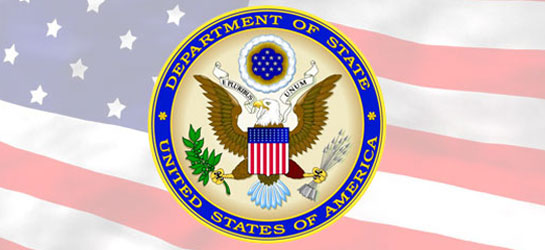
The Colombian government’s response to the latest report critical of the country’s record on human rights was to shoot the messenger rather than address the criticisms. Such a response, widely used by the worst human rights offenders, only calls into question the government’s credibility.
The following remarks were made by a foreign ministry spokesman on a recent report about the human rights situation in 2009:
“We are opposed to … double standards over these issues. If you take a look at this report, all those countries singled out are developing countries. Why doesn’t it talk about the UK itself? This political show … just reveals itself.”
This spokesman belonged to China’s foreign ministry. He was addressing a report by the British government analyzing the human rights situation around the world. Colombia also formed part of the 22 countries of concern named, which included North Korea, Burma, Zimbabwe and China.
The Chinese spokesman’s comments are remarkably similar to the Colombian government’s unapologetic criticism of the U.S. State Department’s report on human rights. Colombia’s vice president, Francisco Santos, bluntly described the report as not only manipulated and based on false information, but as hypocritical and exposing the U.S.’s double standards on human rights. Four days later outgoing President Alvaro Uribe said that the report was biased and politically opportunistic because it was released three days before parliamentary elections, and emphasized that the government has welcomed international scrutiny.
In other words, the government chose to shoot the messenger rather than address the criticism. The same tactic has been used towards recent reports by Colombian NGOs, Human Rights Watch (report), and the United Nations High Commissioner on Human Rights (report).
The U.S. State Department reported, among others, the following human rights abuses: insubordinate military collaboration with new illegal armed groups and paramilitary members who refused to demobilize; arbitrary arrest; impunity and an inefficient judiciary subject to intimidation; illegal surveillance of civilian groups, political opponents, and government agencies; harassment and intimidation of journalists; harassment of human rights groups and activists.
But more importantly, the report mentioned unlawful and extrajudicial killings, and corruption, as human rights violations. The government’s response was understandable since these issues directly affected two (now one) presidential candidates favored by Uribe: Juan Manuel Santos, implicated in the extrajudicial executions, and Andres Felipe Arias, who was directly responsible for the Agro Ingreso Seguro scandal.
Regarding these two scandals the former ministers are head-to-head in their cynicism in refusing to take responsibility. Santos recently said that the extrajudicial killings had occurred since 1984 and that the government took drastic actions upon discovering the deaths. But Santos forgets that these cold-blooded murders skyrocketed during the years he presided over the ministry (2006 to 2009) and that if NGOs and the media had not reported on them nothing would have happened. Arias meanwhile has simply reiterated that giving government subsidies to already wealthy landowners was not illegal.
Nevertheless, Uribe is correct to say that the government has not only welcomed international scrutiny, but also taken steps to address certain human rights violations. For instance, the government has invited and helped various United Nations Rapporteur’s investigations on extrajudicial killings, the situation of indigenous peoples, the independence of the judges and lawyers and the situation of human rights defenders. Moreover, the Defense Ministry’s implementation of a policy to strengthen human rights in the army, which has been heralded by the UN as an example for the world, indicate the government’s pro-activeness on human rights issues.
But despite these exemplary steps, the government has actively contributed to commentators’ opinions that such actions are superficial in scope. For instance, the government has actively sought to derail the extrajudicial executions trials by calling into question many witnesses and denying protection to the mothers of the civilians killed (only last month Uribe promised protection). Most astonishing of all was the manner in which the government entertained in the army barracks soldiers implicated in the extrajudicial executions who were released from prison while still in trial due to a loophole in the judicial system: with parties and spa treatments.
The accusation that the U.S. and Britain’s reports are hypocritical in light of their own despicable human rights violations in Iraq is correct. But irrespective of the messenger, these reports do serve to illustrate to Colombians, and the world, the still precarious situation in the country. Although is true that the levels of human rights violations in Colombia have been appalling for many decades and that by some indicators they have decreased significantly, it is also true that in many instances these human rights violations and corruption scandals intensified under the current government.
Therefore, when addressing these kind of reports, the Colombian government ought to publicize the steps taken, while at the same time showing some humility and accepting that much more needs to be done. Otherwise, Colombia’s attitude towards these reports will not be conducive to trusting the government in their efforts to address the criticisms. Thus, comparisons to China, North Korea, Burma and Zimbabwe would not be far-fetched.
Last week the Canadian government requested pemission to review Colombia’s human rights situation. Because the free trade agreement is currently under discussion, Uribe swiftly accepted. Let’s wait for his response to the report.

